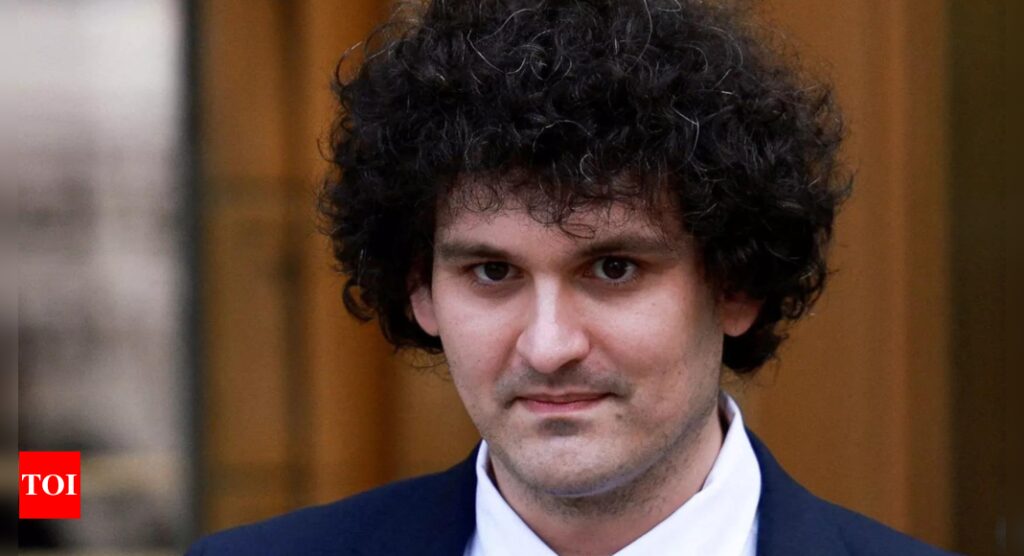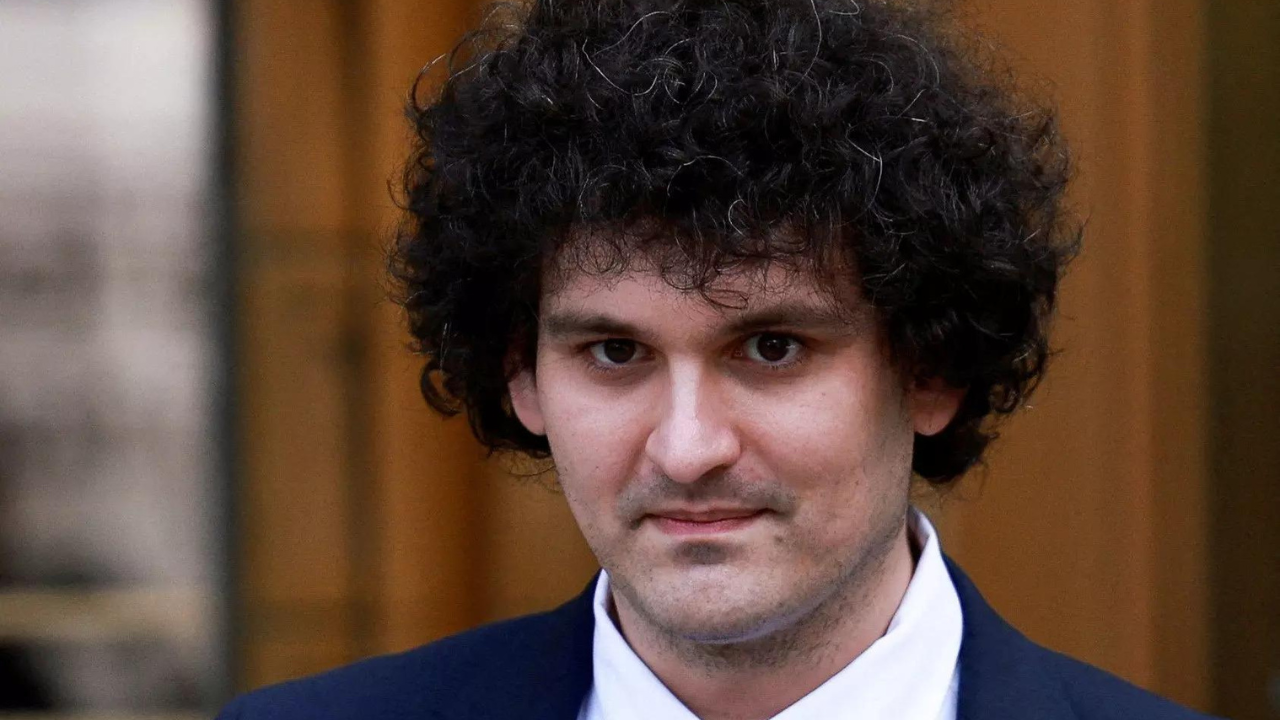[ad_1]
In Manhattan federal court, the onetime cryptocurrency golden boy denied defrauding anyone.
Bankman-Fried, 31, acknowledged some failures, saying he made mistakes, large and small, but he also contested testimony by four former top executives who blamed him for the collapse of his businesses last year when a rush of customers withdrew their money, exposing that billions of dollars were missing.
“We thought that we might be able to build the best product on the market” and move the crypto ecosystem forward, he said.
“It turned out basically the opposite of that. A lot of people got hurt – customers, employees – and the company ended up in bankruptcy,” Bankman-Fried said.
Asked by his lawyer, Mark Cohen, if he defrauded anyone or took customers’ funds, Bankman-Fried answered, “No I did not.”
Mostly unemotional on the witness stand, Bankman-Fried, who could face decades in prison if he is convicted of all charges, said: “I don’t tend to show a lot of freakoutness.”
As the day wore on, testimony focused on what happened as Bankman-Fried’s businesses sank deeper in debt, even as he spent hundreds of millions of dollars on marketing that included a 2022 Super Bowl commercial featuring comedian Larry David, a partnership with quarterback Tom Brady and a firm that linked him to celebrities.
Bankman-Fried said he was “very surprised” when he learned in October 2022 that Alameda had an $8 billion debt that he didn’t know about, which meant the company’s total debt was roughly $10 billion.
Cohen said he expected to finish questioning his client on Monday. A prosecutor said cross-examination would last into Tuesday. The jury was unlikely to get the case until late next week at the earliest.
The California entrepreneur has pleaded not guilty to conspiracy charges accusing him of diverting billions of dollars from clients and investors to make risky investments, buy luxury housing, engage in a star-studded publicity campaign, and make large political and charitable donations.
His testimony became the centerpiece of a defense that has tried to convey that Bankman-Fried had no criminal intent in actions prosecutors say were directly to blame for the collapse last November of businesses Bankman-Fried began creating in 2017 and eventually ran from the Bahamas.
Bankman-Fried told the jury that when he started his first company, Alameda Research, he knew “basically nothing.”
“I knew that a bitcoin was digital,” he said.
He described himself as “somewhat introverted naturally,” but explained that he accidentally became the face of FTX when several interviews “ended up going better than I thought they would.”
He said he testified three times before Congress to persuade legislators to create cryptocurrency regulations that would allow products to be marketed directly to Americans.
As requests for interviews became overwhelming, “It was too late to find a new public face for the company. I was the public face,” he said.
“I had absolutely no background in marketing. Absolutely no idea,” he said.
His lawyer showed jurors a picture of Bankman-Fried with singer Katy Perry, actress Kate Hudson and others at the 2022 Super Bowl in Los Angeles while his client explained that he went to the game because he “thought maybe it would be interesting” and then ended up in the box with celebrities when they saw him and “invited” him in.
Most of Bankman-Fried’s testimony focused on the explosive growth and collapse of FTX, a cryptocurrency exchange, and Alameda, but Cohen occasionally strayed into asking about his client’s personal life and quirks, including his penchant for wearing casual clothing and letting his hair grow.
Bankman-Fried blamed himself for the breakdown of his on-off romantic relationship with Caroline Ellison, Alameda’s chief executive, saying “I didn’t have the time or the energy to put in what I think she wanted from a relationship.”
“It’s not something I’ve been great at, being able to sustain a romantic relationship for a long period,” he said.
Still, he cast Ellison as a villain in his company’s collapse, saying she failed to follow his instructions for over a year to create a hedge to protect Alameda.
Explained: How safe is your Bitcoin on Binance and WazirX after FTX collapse
He said he considered shutting down the company at one point because “there might not be the right management in place for Alameda to justify its risk going forward.”
When the jury was shown a photograph of Bankman-Fried with a deck of cards, he explained that he used them to satisfy his urge to “compulsively fidget with things” – a habit from his college years that grew so severe that he said he’d wear out a deck in a week. He has since switched to fidget spinners.
Bankman-Fried, wearing a suit and tie in court and short hair, said he frequently wore shorts and T-shirts because he found them comfortable. As for the scattered long hair he had until weeks ago, he said: “I was busy and lazy and didn’t bother getting haircuts for long periods of time.”
Before Bankman-Fried testified Friday, Judge Lewis A. Kaplan mostly shut down his lawyers’ plans to show Bankman-Fried made many decisions about his businesses in consultation with lawyers, saying evidence of that would falsely imply that lawyers with full knowledge of all facts “blessed what the defendant is alleged to have done.”
The defendant was extradited from the Bahamas to New York in December to face fraud charges.
Initially granted a $250 million personal recognizance bond and allowed to live with his parents in Palo Alto, California, the bond was revoked in August and he was jailed when Kaplan concluded that he had tried to influence potential witnesses at his upcoming trial.
Prosecutors built their case against Bankman-Fried for three weeks, relying largely on his former top executives, an inner circle of individuals who shared a penthouse apartment in the Bahamas with Bankman-Fried.
The executives testified that Bankman-Fried directed them to spend billions of dollars taken from the accounts of FTX customers and funneled through Alameda Research, a hedge fund he started in 2017, two years before he created the FTX cryptocurrency exchange.
[ad_2]
Source link











More Stories
India’S Growth Forecast: S&P ups India’s FY’24 growth forecast to 6.4% on robust domestic momentum
India to remain fastest-growing major economy, but demand uneven: Poll
Jack Ma: Jack Ma gets back into business with ‘Ma’s Kitchen Food’